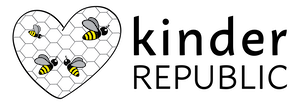What is Democratic Education?
Unlike pedagogies arising out of the work of individuals (e.g. Montessori and Waldorf Steiner) there is no central authority that defines Democratic Education - just like there is no authority that can decide whether a nation can describe themselves as democratic (hence North Korea is able to call itself the "Democratic People's Republic of Korea" and former East Germany was the "German Democratic Republic").
Nevertheless, it is impossible to practice and advocate for Democratic Education without some shared understanding of what it means, and therefore
- The 13th International Democratic Education Conference (Berlin, 2005) adopted this resolution:
We believe that, in any educational setting, young people have the right- to decide individually how, when, what, where and with whom they learn,
- to have an equal share in the decision-making as to how their organisations - in particular their schools - are run, and which rules and sanctions, if any, are necessary
- The European Democratic Education Community expanded on the above:
In any educational institution, students have the right- to make their own choices regarding learning and all other areas of everyday life. In particular, they may individually determine what to do, when, where, how and with whom, so long as their decisions do not infringe on the liberty of others to do the same.
- to have an equal share in the decision making as to how their organisations – in particular their schools – are run, and which rules and sanctions, if any, are necessary.
- Dr. Peter Gray (one of the leading voices advocating for Self Directed Education and author of "Free to Learn" which can be considered the "bible" of SDE) and the Alliance for Self Directed Education, in this introduction of SDE, considers Democratic Schools as the institutional form of SDE.
Why we chose Democratic Education
As laid out in Our Ambition, we believe in education to create a kinder world — a world that is more free, peaceful, respectful, sustainable, inclusive and equitable.
And the best way to achieve those values is for education itself to embody those values.
Actually... it is the only way : if we were to only talk about those values while not actually living them, it would communicate that that value is not really important, and that one only needs to pay lip-service to it.
In researching educational alternatives since 2013, we found various models, most of which claimed to give children autonomy and freedom, and we believed them... we almost signed up to be a franchise of one of them.
We believed them so much that when we first heard about the Sudbury Valley School (probably the most famous example of a Democratic School) we dismissed it as being crazy and unrealistic (because, at the time, we were not ready to truly trust children)
But eventually, through engagement with other practitioners (one blessing of COVID 19 was it pushed conferences online, making it affordable for us to attend), we warmed to the concept and now, everything in the design of our schools embodies these values, and we will strive for these values to the best of our abilities when taking this approach to conventional schools.
This is also why we chose the name Kinder Republic (during our incorporation in 2020 prior to commencing operations in 2021).
Furthermore, Dr. C. W. W. Kannangara, in the 1943 Report of the Special Committee on Education, in advocating for educational experimentation, wrote "the democratic State may have as many kinds of education as there are opinions about education. We would impose no limitation on educational developments that are consistent with the democratic way of life" - and what could be more consistent with a democratic way of life than a school run Democratically?
Of course, just like a Democratic State requires more than just free-and-fair elections, a Democratic School requires more than children participating in decision making - it must embody typical democratic values such as Freedom, Respect, Equality and Fairness in how the school operates.
